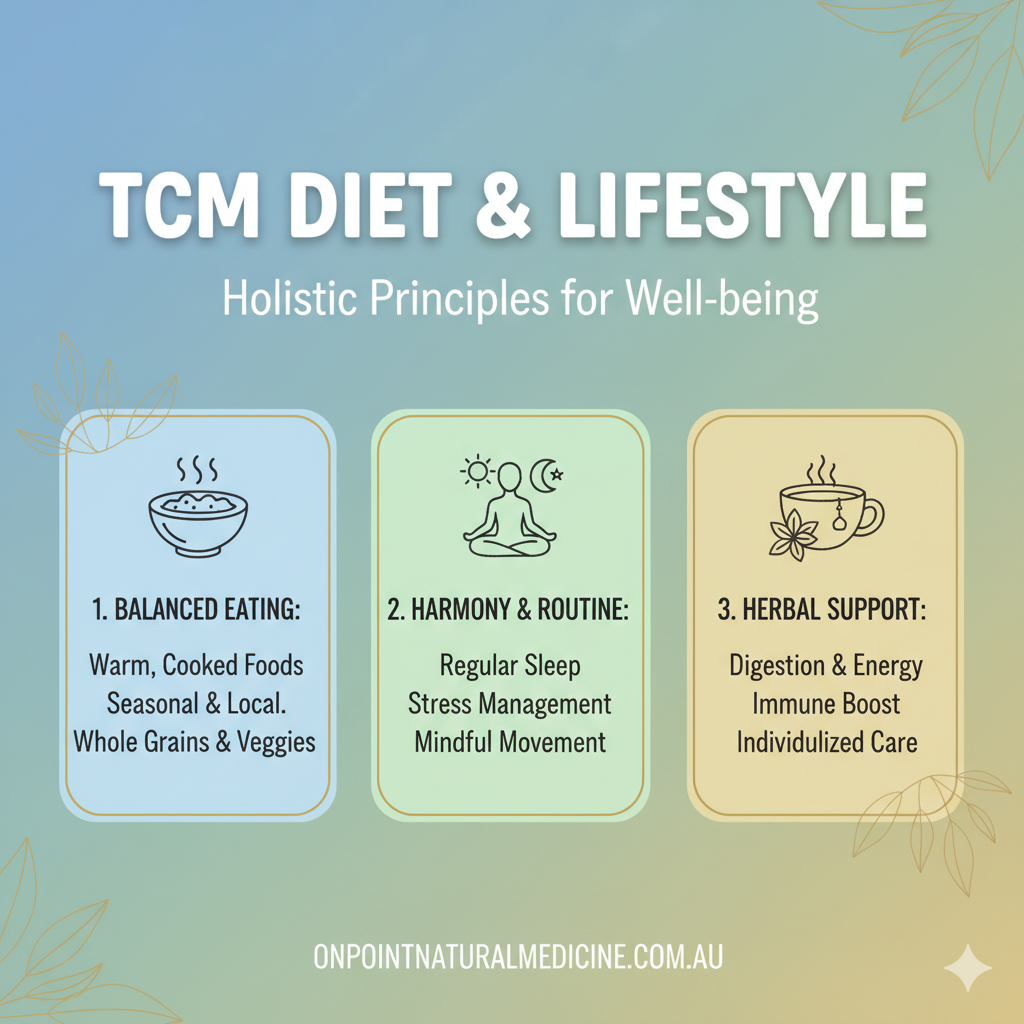
In our fast-paced modern world, it’s easy to feel disconnected from our bodies and the natural rhythms of life. We often look for quick fixes, but lasting well-being tends to arise from a holistic approach that nourishes us from the inside out. This is where the traditional wisdom of Traditional Chinese Medicine (TCM) offers valuable insights.
TCM provides time-tested principles for cultivating balance and vitality through simple diet and lifestyle choices. It’s not about strict rules, but about understanding your body’s unique needs and aligning with nature’s cycles.
1. Balanced Eating: Food as Medicine
In TCM philosophy, food is regarded as medicine, and how you eat is considered just as important as what you eat.
Warm, Cooked Foods:
From a TCM perspective, warm, cooked meals help support digestion by easing the work of the Spleen and Stomach systems. Choosing soups, stews, and gently steamed vegetables is believed to help the body process nutrients more efficiently and maintain internal balance.
Seasonal & Local:
Traditionally, eating foods that are in season and locally grown is thought to help the body adapt to the climate and receive the nutrients it naturally needs at that time of year.
Whole Grains & Veggies:
A variety of grains and vegetables form the basis of a balanced diet in TCM theory, providing steady energy and a wide range of nutrients to support overall harmony.
2. Harmony & Routine: Cultivating Inner Balance
Beyond what’s on the plate, TCM highlights the importance of rhythm and routine for physical and emotional well-being.
Regular Sleep:
In traditional TCM understanding, each organ system has a natural rhythm of repair, and consistent sleep supports this renewal. Going to bed and waking up at similar times each day is believed to aid balance and vitality.
Stress Management:
Chronic stress is described in TCM as a factor that can disturb the smooth flow of Qi (life energy). Gentle practices such as mindful breathing, meditation, or time in nature are traditionally used to restore calm and balance.
Mindful Movement:
Activities like Tai Chi, Qigong, walking, or yoga help circulate Qi and blood while supporting flexibility and mental clarity. These practices are valued for encouraging relaxation and steady energy without over-exertion.
3. Herbal Support: Targeted Wellness
While diet and lifestyle are the foundation, TCM also includes the use of herbs to support balance and well-being.
Digestion & Energy:
Certain traditional herbs are used to assist healthy digestion and energy according to TCM principles.
Immune Support:
Within TCM, some herbs are thought to help maintain the body’s natural defenses and resilience.
Individualized Care:
Herbal formulas are always tailored to the individual. They are prescribed based on each person’s constitution and health pattern. Always consult a qualified TCM practitioner before using herbal products or supplements.
Start Your Journey to Holistic Well-being
Embracing TCM diet and lifestyle principles can be seen as a journey of learning and self-care. It’s about tuning into your body’s wisdom, making conscious choices, and cultivating habits that support vitality and balance.
Ready to explore how these time-honored principles can support your health?
We’re here to guide you.
Learn more about our TCM Diet & Lifestyle Consultations: onpointnaturalmedicine.com.au

